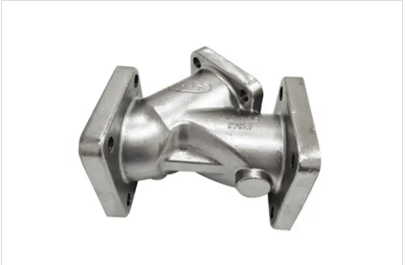Mobile:+86-311-808-126-83
Email:info@ydcastings.com
precision casting
Precision Casting A Cornerstone of Modern Manufacturing
Precision casting, also known as investment casting, is an advanced manufacturing process that has revolutionized the production of complex metal parts. This technique is renowned for its ability to produce high-quality components with intricate geometries and tight tolerances, making it a fundamental process in industries such as aerospace, automotive, medical devices, and machinery.
The precision casting process begins with the creation of a wax or polymer pattern, which is an exact replica of the final product. This pattern is coated with a ceramic shell, which is then heated to remove the wax, leaving a hollow cavity in the shape of the desired part. Once the mold is formed, molten metal is poured into the cavity. After cooling, the ceramic shell is broken away to reveal the cast component. This method allows for excellent surface finish and dimensional accuracy, often eliminating the need for further machining.
One of the primary advantages of precision casting is its versatility. It can accommodate a wide range of materials, including aluminum, steel, titanium, and various alloys. This flexibility allows manufacturers to select the optimal material for their application, enhancing performance and durability. Furthermore, precision casting is particularly beneficial for creating complex shapes that would be challenging or impossible to achieve with traditional machining methods.
precision casting

Another significant benefit of precision casting is its efficiency. The process enables the production of near-net-shape components, significantly reducing material waste. In an era where sustainability is becoming increasingly important, this reduction in scrap metal not only lowers costs but also minimizes the environmental impact of manufacturing operations. Moreover, the high degree of automation in precision casting processes leads to consistent quality and reduced production times, making it an attractive option for large-scale manufacturing.
However, precision casting is not without its challenges. The process requires skilled labor and precise control over various parameters, such as temperature and timing, to ensure that the final product meets the necessary specifications. Additionally, the initial setup costs for molds can be high, making it more suitable for high-volume production runs rather than one-off projects.
In conclusion, precision casting stands as a vital process in modern manufacturing, providing remarkable benefits in terms of complexity, material efficiency, and quality. As technology continues to advance, the capabilities of precision casting are expected to grow, enabling the production of even more sophisticated components. Industries that embrace this technique can expect to remain competitive in an increasingly demanding market, cementing precision casting's place as a cornerstone of innovation in manufacturing.
-
Understanding Metal Casting TechniquesNewsApr.02,2025
-
Understanding Exhaust Manifolds for Enhanced Engine PerformanceNewsApr.02,2025
-
The World of Metal FabricationNewsApr.02,2025
-
Key Components for Pump and Turbo EfficiencyNewsApr.02,2025
-
Essential Tools for Automotive Maintenance and RepairNewsApr.02,2025
-
Durable Valve Components for Effective Water ManagementNewsApr.02,2025











